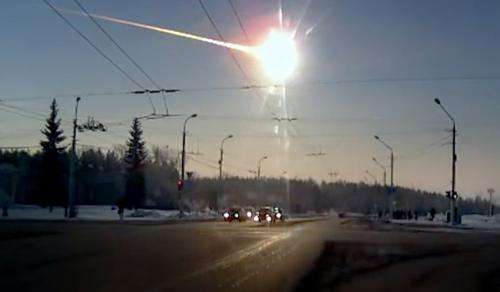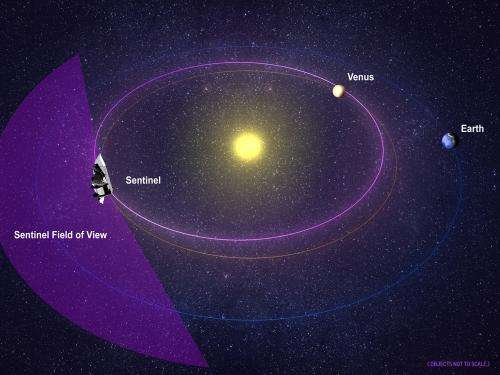Astronauts to reveal sobering data on asteroid impacts

This Earth Day, Tuesday, April 22, three former NASA astronauts will present new evidence that our planet has experienced many more large-scale asteroid impacts over the past decade than previously thought… three to ten times more, in fact. A new visualization of data from a nuclear weapons warning network, to be unveiled by B612 Foundation CEO Ed Lu during the evening event at Seattle's Museum of Flight, shows that "the only thing preventing a catastrophe from a 'city-killer' sized asteroid is blind luck."
Since 2001, 26 atomic-bomb-scale explosions have occurred in remote locations around the world, far from populated areas, made evident by a nuclear weapons test warning network. In a recent press release B612 Foundation CEO Ed Lu states:
"This network has detected 26 multi-kiloton explosions since 2001, all of which are due to asteroid impacts. It shows that asteroid impacts are NOT rare—but actually 3-10 times more common than we previously thought. The fact that none of these asteroid impacts shown in the video was detected in advance is proof that the only thing preventing a catastrophe from a 'city-killer' sized asteroid is blind luck. The goal of the B612 Sentinel mission is to find and track asteroids decades before they hit Earth, allowing us to easily deflect them."
The B612 Foundation is partnered with Ball Aerospace to build the Sentinel Infrared Space Telescope Mission. Once positioned in solar orbit closer to the Sun from Earth, Sentinel will look outwards in infrared to detect hundreds of thousands of as-yet unknown near-Earth objects over 140 meters in size. The privately-funded spacecraft is slated to launch in 2017-18 aboard a SpaceX Falcon 9 rocket.
In addition to Lu, Space Shuttle astronaut Tom Jones and Apollo 8 astronaut Bill Anders will be speaking at the event, titled "Saving the Earth by Keeping Big Asteroids Away."

The event will be held at 6 p.m. PDT at the Museum of Flight in Seattle, WA. It is free to the public and the visualization will be made available online on the B612 Foundation website.
Provided by Universe Today





















